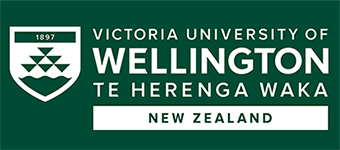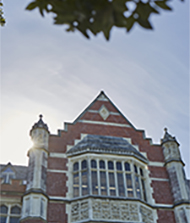Martin Quietzsch is International Recruitment Manager at Victoria University of Wellington. Here he tells us more about the institution and why Cambridge students should consider studying there.
About the university

‘Victoria University of Wellington is located in the vibrant capital of New Zealand – the geographical, political and cultural heart of the country. The university comprises of three campuses across Wellington and provides world-class education and a student experience second to none. Its academic tradition stretches back more than 125 years and more than 20 000 students benefit from a focus on research, teaching and engagement. The university prides itself on developing personal qualities such as creativity and critical thinking to develop globally confident citizens.’
‘Students enjoy the university’s mix of cutting-edge knowledge and innovation with distinctively New Zealand approaches, and gain access to leaders, creators and thinkers who thrive in Wellington. The university features regularly among the top in international rankings and its outstanding research has received national and international recognition.’
‘Like the city, the university values and is enriched by its multicultural population. The university is a comprehensive, public university offering undergraduate, postgraduate and PhD programmes in a variety of academic areas split into eight teaching faculties. Leadership programmes and plenty of clubs to join enhance the students’ time in Wellington, while the university’s dedicated international office provides students with a wide range of support and services.’
International students
‘We have around 2000–2500 international students each year, which amounts to roughly 13 per cent of the total student population. Our students come from over 100 countries.’
Scholarships and other financial incentives
‘International students should explore our Scholarships page. We offer a variety of scholarships; the most suitable one for Cambridge International students (outside New Zealand) is our Tongarewa Scholarship.’
Popular subjects
‘Some of our most popular subjects are Business, Architecture, Design, Film, Law, Engineering (incl. Cybersecurity and Software), International Relations, Psychology, Actuarial Science and Data Science.’
Cambridge International students
‘Over the years, Victoria University of Wellington has welcomed Cambridge International students from many countries around the world. All of our undergraduate programmes have the same entry requirement, so there is no differentiation between the individual bachelor’s degrees (exceptions are the Bachelor of Education, which requires a higher level of English, and the performance-based majors in the Bachelor of Music, which requires an audition). Our Bachelor of Design Innovation and our Bachelor of Architecture do not require students to submit a portfolio for first-year entry.’
What advice would you give to undergraduate Cambridge International students?

Why should Cambridge International students choose your university?
‘High-quality education in Wellington – a wide range of academic opportunities combined with a safe environment, beautiful nature and a quirky city.
Quality education: Victoria University of Wellington is ranked among the best in the world and the many accreditations of its programmes are testimony to the quality of its education.
Academic variety: The university’s large suite of programmes allows students to focus on their passion, while flexibility in many degrees enables them to explore.
Safety: New Zealand features regularly among the safest countries, and Wellington is one of the safest capital cities in the world.
Nature: New Zealand’s diverse landscape (from beaches to snow-capped mountains, and everything in between) is breath-taking and Wellington’s large harbour in combination with its hills, parks, forests and coastline frames city life in beautify scenery.
The city: Wellington is known for its quirky cafes, award-winning restaurants, great coffee, cultural offerings and street art. A great diversity in its population ensures influences from all over the world – often with a unique Kiwi twist.’

